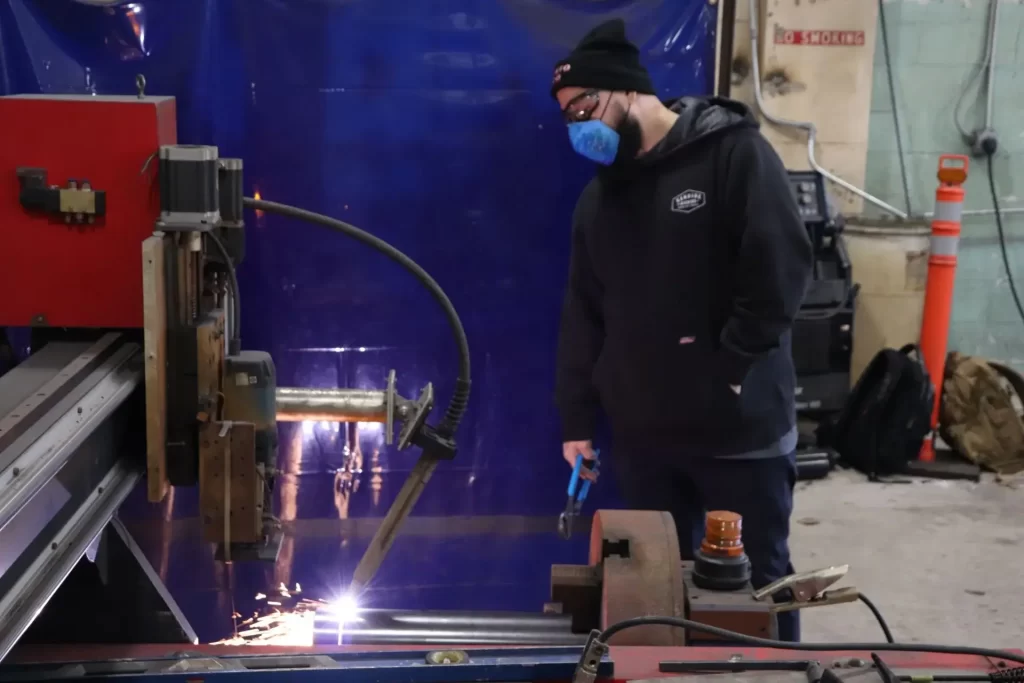A certificate for welding is a conventional assessment required by professional organizations to assess welding skills and techniques. Standard procedures assessed in the certificate for welding include various kind of welding. For example, flat, horizontal, overhead, and vertical welding positions, gas tungsten arc welding, flux core arc welding, shielded metal arc welding, and gas metal arc welding.
Certifications are diplomas obtained by passing assessments. These tests may be computerized knowledge exams or practical demonstrations of welding aptitude. Welding compels accuracy and specialized skills to generate work across various industries.
Professional welders who wish to improve their job qualifications can benefit from earning welding certifications to ascertain their expertise. Welders can receive multiple certifications based on experience, education, and training.
Certifications verify to employers that you have skills in your field. Holding certifications in specific sectors enhances professional qualifications and sets you apart as a robust candidate for the welding program.
Here are some of the advantages of earning welding certifications:
Here is the fundamental certificate for welding you can earn to enhance your professional qualifications. This certificate training gives you an edge at places like Spring garden, Wynnefield Heights, Mantua, Mill Creek, Pennsauken, NJ, etc.
You can attain the Certified Welder significance through practical assessments that provide you with transferrable credentials. There are no requirements for the certification, and you can test to serve a Certified Welder that facilities around the world.
The Certified welding course assesses welding abilities in specific procedures used in several industries. These industries comprise petroleum pipelines, structural steel, sheet metal, chemical refinery welding. You can also access a company-supplied or non-code welding specification.

This certification is widely comprehended as an indication of leadership and an outstanding skill level within the welding industry. The CWI certification can provide welders job security and more advancement openings containing higher earnings. A CWI certification can enhance the durability of your career as you work with project leaders to analyze welding work. CWI can also stimulate certifications for other welding experts.
To qualify for CWI certification, you’ll require a year of practical work experience pivoting on your degree of education. The CWI certification exam comprises three separate computerized tests, each two hours long. The first inspection of critical welding knowledge consists of 150 questions. And, with the subsequent two tests made up of 46 open-book and inspection-based questions.
Certified Welding Educators assemble welding instruction, conduct aptitude, and welding repair training, develop instructional materials, and infer educational requirements. CWEs must also be eligible to do the following:
To qualify for CWE testing, applicants must wield at least the education of high school certification. In addition, they should have accompanied a welding training program and have at least five years of knowledge in the field.
Resistance welding is a high-demand enterprise, and certification provides welders evidence of their developed skills in resistance processes. Resistance welder classes knowledge comprises an application, procedure, and layout in the products like sheet metal, appliances, automobiles, and wire products.
The CRWT examination determines a resistance technician’s proficiency in utilizing resistance welding procedures, knowledge of resistance principles, and understanding of the industry.
The CRI guarantees a welder’s knowledge to assess radiographs of weldments. Radiographic interpreters must be eligible to evaluate indications from radiographic media throughout the procedure of analyzing both weldments and contiguous base metal.
Applicants for the CRI need comprehensive background knowledge and experience and must fulfill the following minimum requirements:
This is the highest certification accessible to welding training specialists. CWS certifications are approved for those who have attained administrative positions in the field. The certification is suitable for welding leaders with knowledge in quality verification and problem-solving.
To qualify as an aspirant for the CWS, applicants must carry a CWI certification for six out of eight prior years before taking the CWS exam. You also require at least 15 years of relevant work experience to certify. The exam for certification comprises two portions that concentrate on both technical and managerial fundamentals.
Welding engineers who authorize their aptitude in preparing welded joints, assembly, and fabrication are suitable candidates for the CWE exam. A certified welding engineer is part of the procedure for interpreting welding plans and procedures and the substantial welding work.
The CWE exam comprises four parts filling in the fundamentals of science and welding. Candidates must pass all aspects with at least 60% to receive the certification.
Read More: